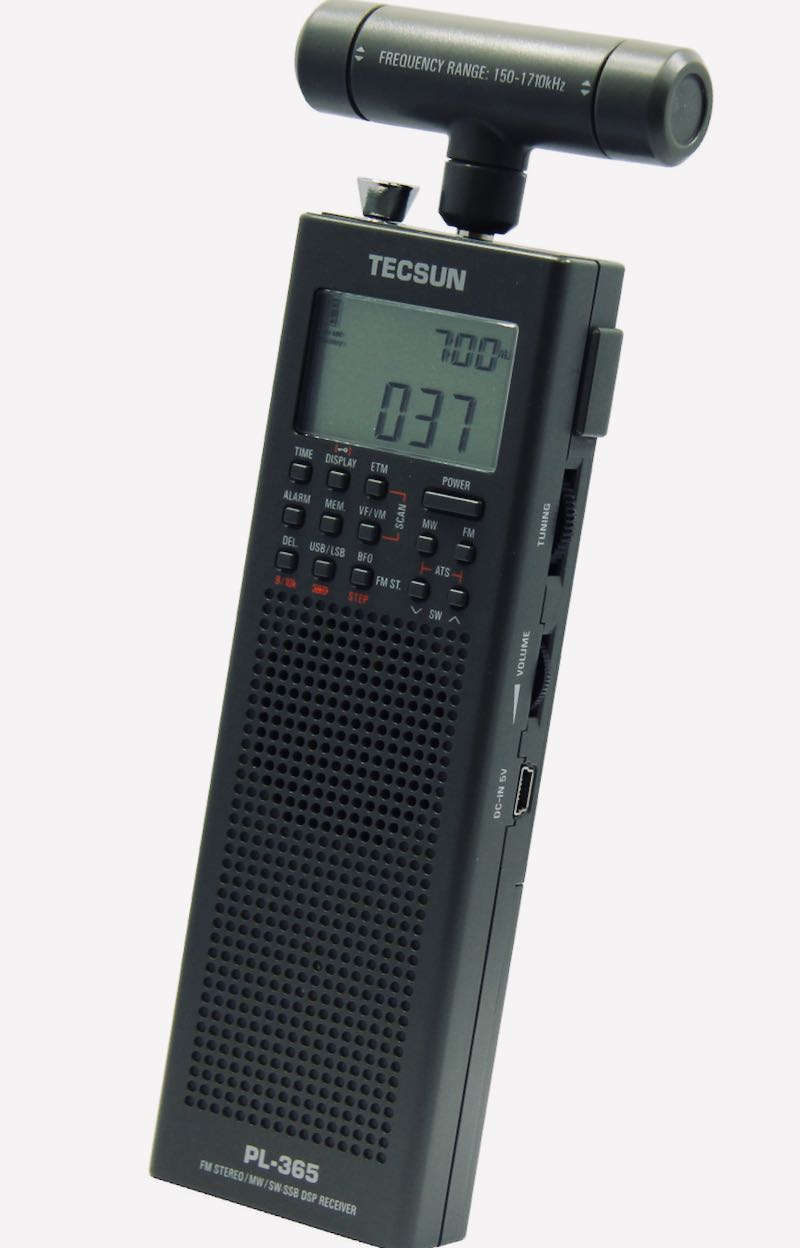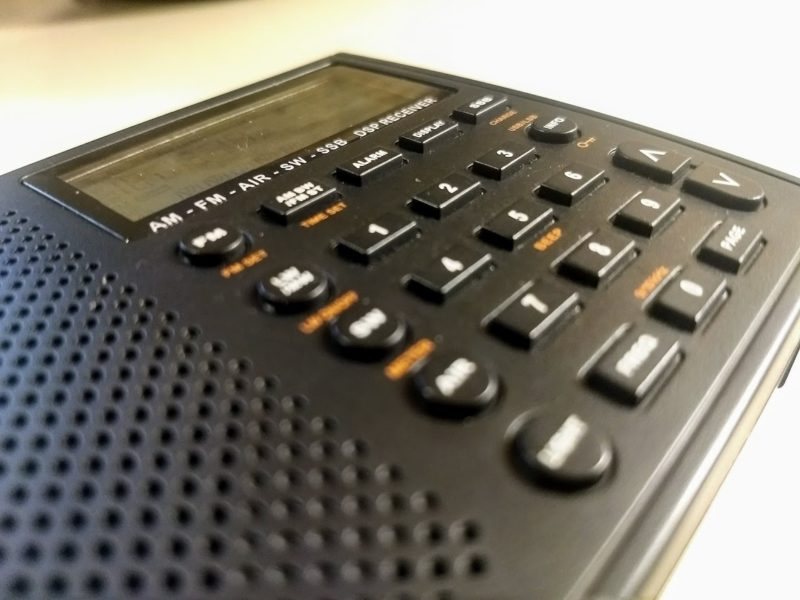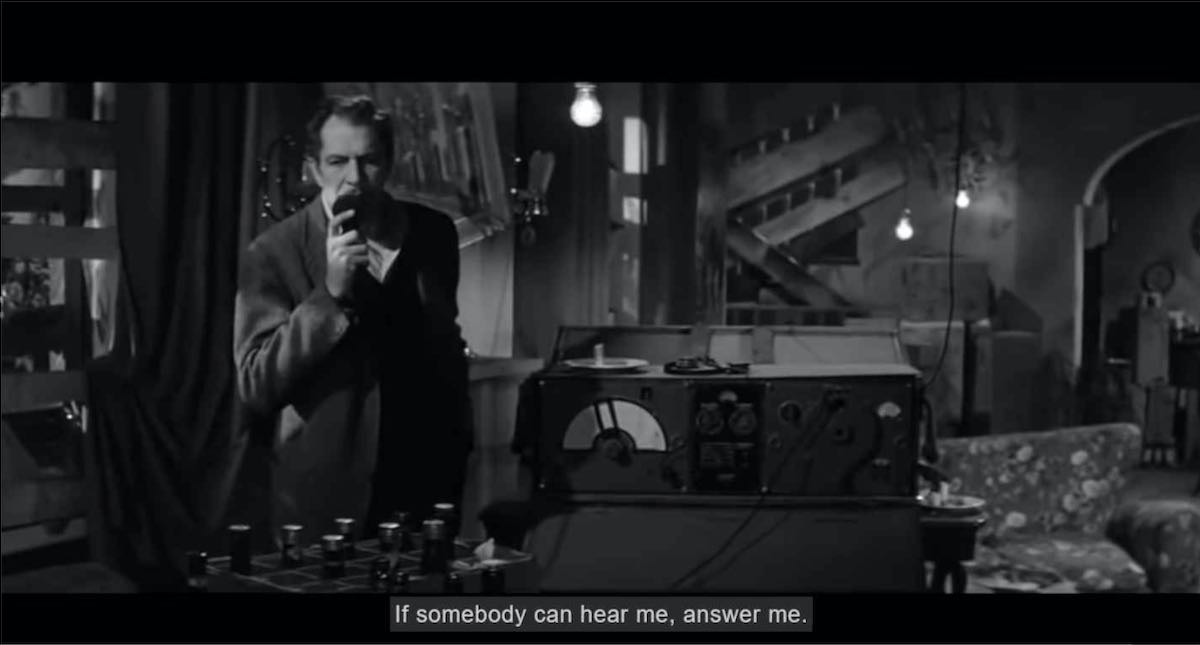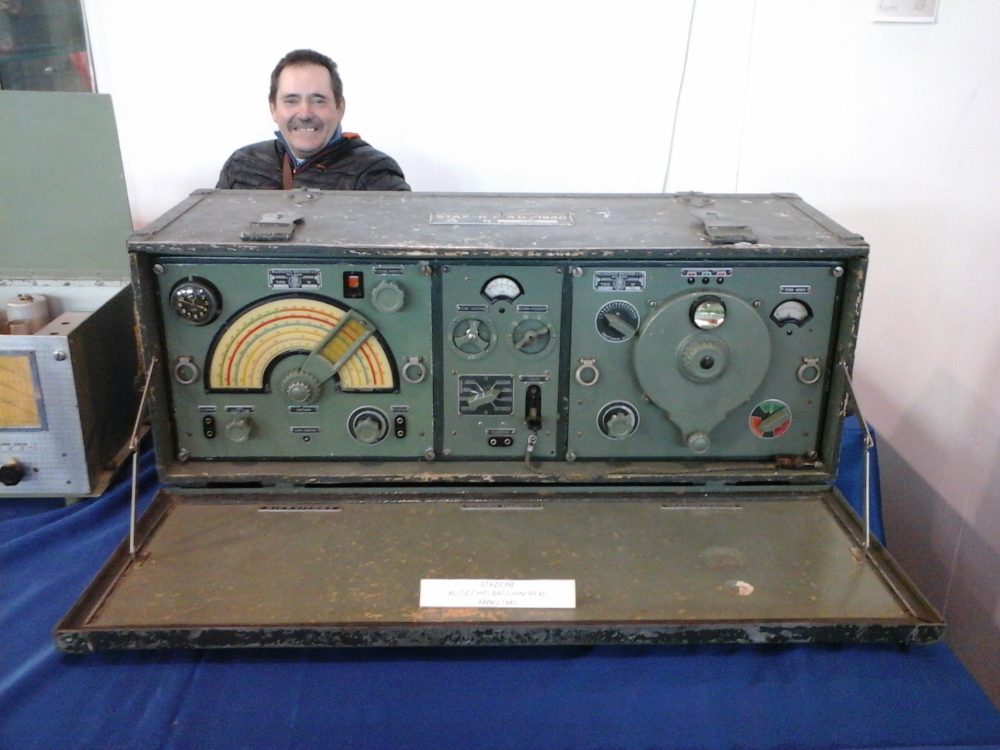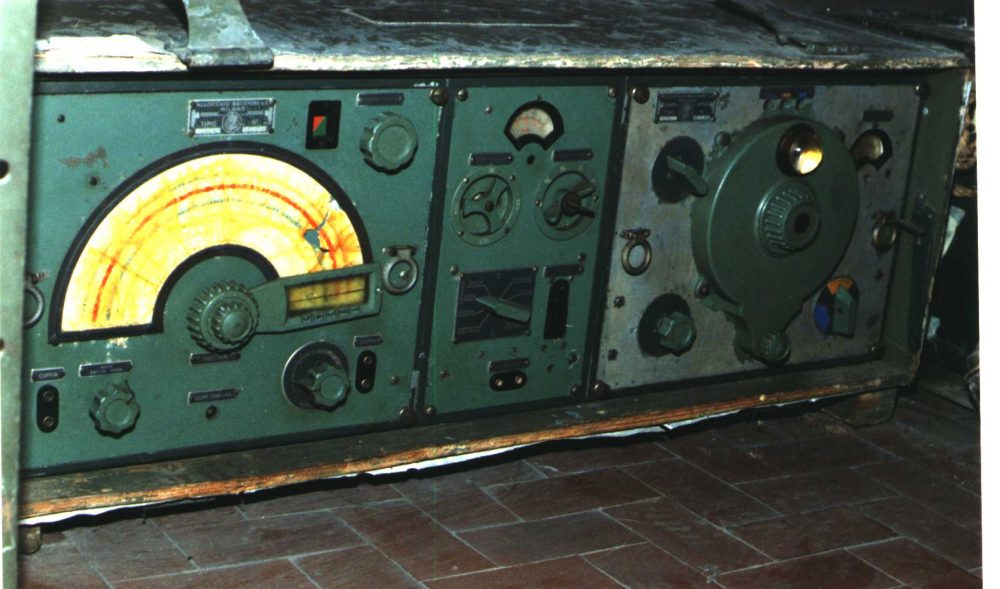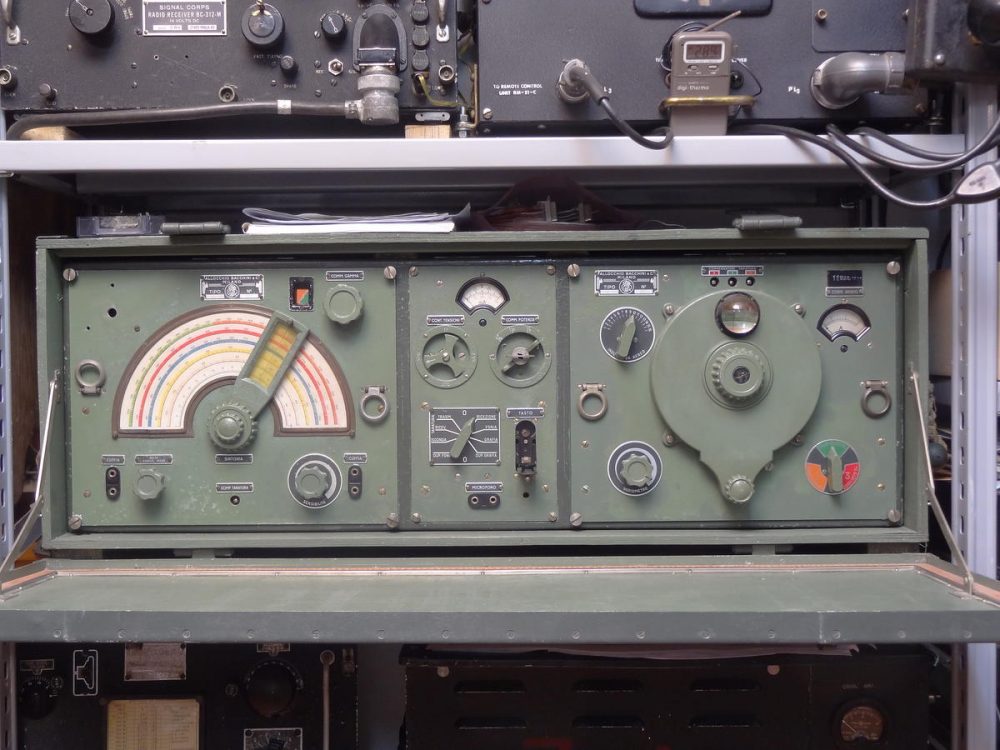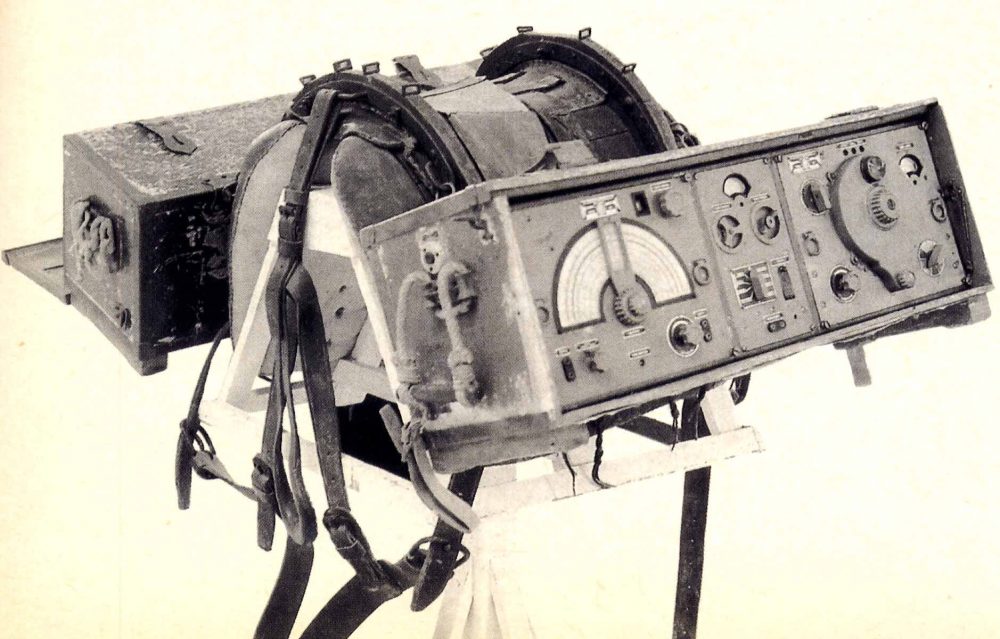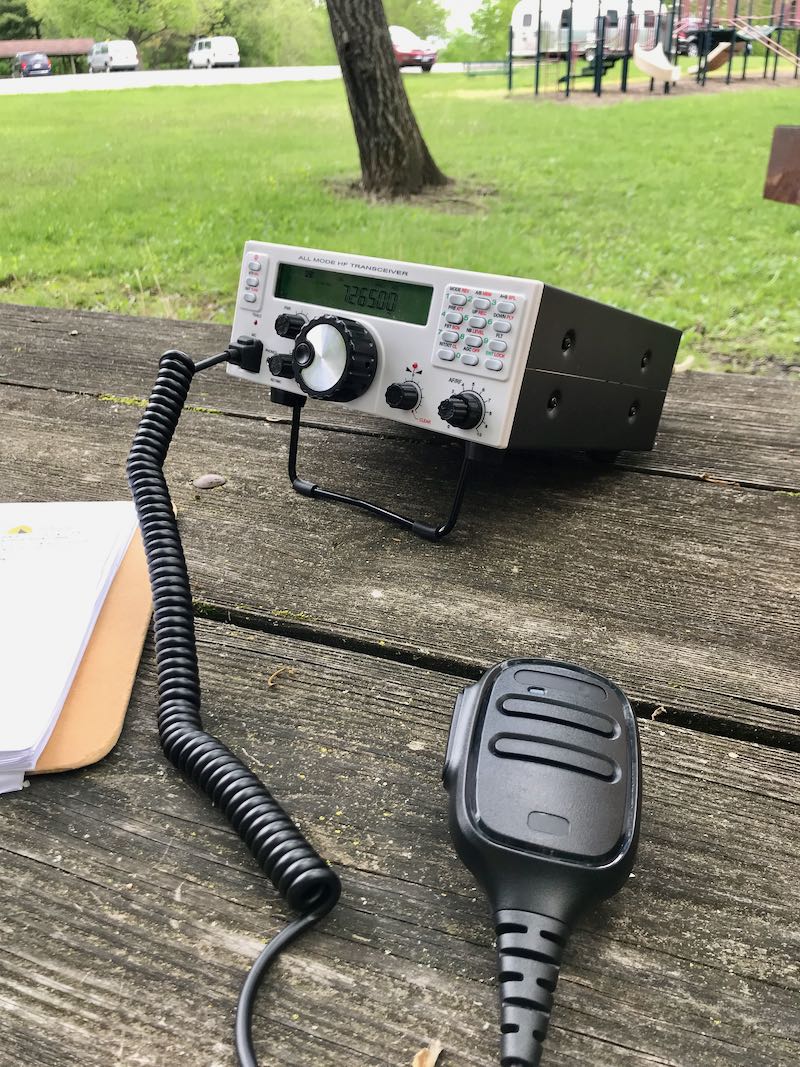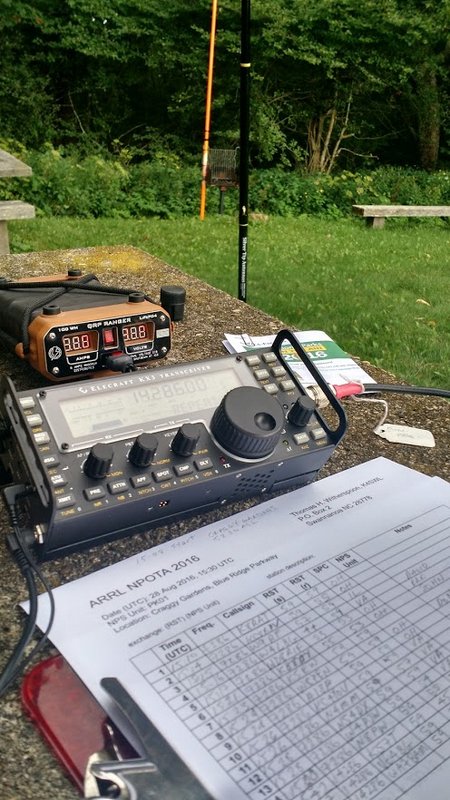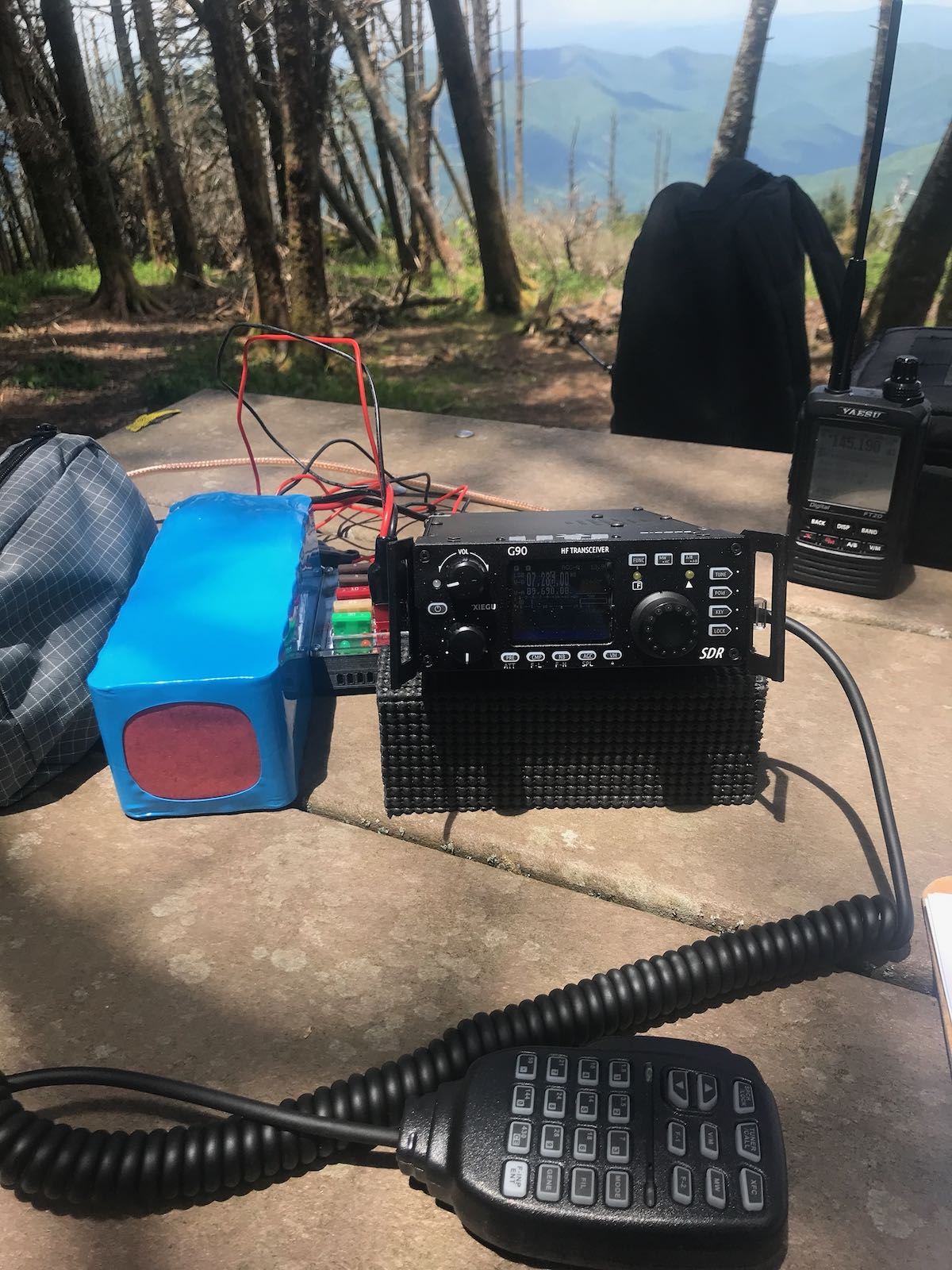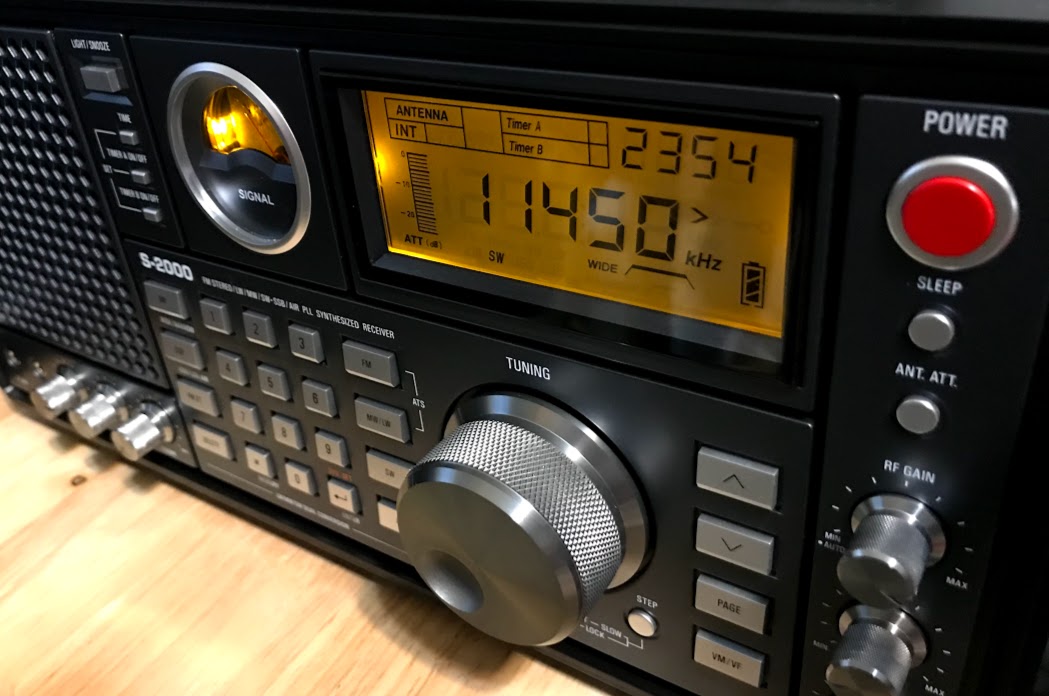 Radio Waves: Stories Making Waves in the World of Radio
Radio Waves: Stories Making Waves in the World of Radio
Because I keep my ear to the waves, as well as receive many tips from others who do the same, I find myself privy to radio-related stories that might interest SWLing Post readers. To that end: Welcome to the SWLing Post’s Radio Waves, a collection of links to interesting stories making waves in the world of radio. Enjoy!
Many thanks to SWLing Post contributors Paul Evans, Mike Terry, and Michael Bird for the following tips:
WHEN TALKING ABOUT THE TALLEST structures in the world, one often thinks of skyscrapers above modern cities, but radio transmitters in remote locations also reach dizzying heights.
Italy is famous for its many architectural marvels built over the millennia, but its tallest building (a sleek, modern structure in Milan) is only 758 feet tall. The title of the tallest overall structure goes to a radio transmitter on the Sant’Anna hill near the town of Caltanissetta, in Sicily. (In between the two are a number of transmitters and power plant chimneys.) This antenna has a height of 938 feet, and was built by the national public broadcasting company, RAI, between 1949 and 1951. At the time it was also the tallest structure in all of Europe, until 1965 when a transmitting station in the United Kingdom was inaugurated.[…]
Last week, I wrote a little about streaming audio and how, with the use of smart speakers, smartphones, and plain old computer streaming, the possibility of internet radio essentially replacing traditional broadcast radio.
This week I want to travel to both the past and one of broadcast radio’s possible futures, spurred on by the ideas presented last week, my absolutely illogical love of AM radio, and a letter to the editor that I read online at radioworld.com.
AM radio broadcasting is almost a century old in the United States – numerous stations in Los Angeles, including KHJ (930 AM), KFI (640 AM) and KNX (1070 AM) will celebrate 100 years of broadcasting in two years. That’s an impressive feat, especially considering the technology is essentially the same as it was in 1922.
As I mentioned last week, digital HD Radio, considered for a time as the savior of both AM — due to higher fidelity — and FM — due to potential higher fidelity and extra stations — just hasn’t made the impact many had hoped. For various reasons, many AM stations have turned off the HD signal, even while FMs continue to use it, and consumers don’t seem all that interested in either. But as I said last week, with smart speakers, what’s the point? And a related question comes up: is broadcast AM radio just a dead technology?
Christopher Boone thinks he has the answers. No, AM is not dead. But if you really want to improve it, bring back a technology that already “failed” … AM stereo.[…]
VEA (Volunteer Examiners Australia) is pleased to advise we are currently able to perform online remote exam sessions for both AMC and ARRL VE Examinations.
VEA has AMC Level 3 examiners that can conduct remote online examinations.
Also, the ARRL VEC has entrusted us by extension the FCC, to be examiners for FCC-issued license via remote online examinations, a volunteer examiner, must ensure the exam conducted fairly and that there is the same level of integrity as there would be for an in-person examination.
Candidates need to be aware there are conditions and eligibility in registering to do an ARRL online remote examination, e.g. living in a remote location, or the candidate is physically impaired to attend an exam session.
VEA does run bi-monthly AMC and ARRL VE exam sessions during the year,
so if you are interested, visit our website www.vea.org.au complete the online registration form.
VEA currently have AMC and ARRL VE examiners in Queensland, New South Wales, Victoria, South Australia, and Western Australia.
VEA looks forward in supporting the ham radio community in providing this valuable service to both AMC and ARRL VEC.
73 from Peter VK3FN
Wireless Institute of Australia[…]
Posted in Latest news from ABC Friends on 28 June 2020
ABC Friends have written an open letter to the Prime Minister in the wake of the recent staff and funding cuts.
Dear Mr Morrison,
I write on behalf of many angry Australians who want to know why your government continues to undermine Australian public broadcasting with ongoing funding cutbacks at the same time as the commercial media sector is favoured.
Your recent statement that “there have been no cuts to the ABC” sadly reminds us of Tony Abbott’s similar bold election promise in 2013, yet this was followed by major cutbacks in his first Budget as Prime Minister. Clearly in our current media environment there are facts and ‘alternative’ facts, it all depends on the presenter and the audience.
Many of us are more inclined to rely on information from your ABC Board Chair, Ita Buttrose, who said in her 2019 Forward to the Annual Report – “our task has been made harder by the imposition of the three year indexation freeze which comes on top of a $50 million a year cut now embedded in our base.”
We see the recently announced Five Year Plan as a brave attempt by the Managing Director, David Anderson, to live within your governments funding allocation, but obviously further staff cuts and downgrading of ABC services and programs is an inevitable outcome of reduced funding.
We all appreciate that governments rely on a degree of political spin to make their decisions seem more palatable, but do you seriously expect the community to believe that an ABC Managing Director would deliberately retrench so many staff and downgrade services and programmes if the ABC Budget was adequate?
We expected more of your leadership because you have a responsibility to act on our behalf, as ABC shareholders to enable the ABC to fulfil parliamentary approved obligations under its Charter. The Federal Government acts as caretaker of all our national institutions and in this regard the ABC ranks highly with the Parliament and the High Court in protecting the interests of all Australians.
Chair of the ABC Board, Ita Buttrose has consistently tried to work with you and your Communications Minister, Paul Fletcher, to get a realistic re-assessment of the ABC Budget to meet the demands of a changing media environment and national emergencies. Yet these genuine efforts by both Board and Management have been repeatedly ignored. Furthermore, there has been a quite calculated misrepresentation of budgetary analysis since 2014 assuming that official promotion of fake news will provide an effective distraction from the reality of past and current government decision making, which has resulted in an ongoing 10% budget reduction.
Over the past six years the ABC has been the target of funding cuts, various enquiries, political attack and even a police raid. You can not be surprised that Australians are outraged about the latest announcement this week which will culminate in further job losses, valued services and Australian content. You regularly advocate protection of jobs and your COVID-19 employment protection initiatives are admirable. Yet successive Coalition administrations have caused the loss of 1250 ABC professional staff.
Can you explain to us why you are so determined to downgrade the ABC, which is a valued national treasure supported by over 80% of Australians? We understand that you are regularly lobbied by the Murdoch American News Empire and other commercial media interests, which are ideologically opposed to public broadcasting. Furthermore, we know that some members of your cabinet are members of the Institute of Public Affairs, which advocates privatisation of the ABC. However, ABC Friends would respectfully remind you that, as Prime Minister, your first loyalty is to the Australian people and our public institutions.
As a national organisation we have been overwhelmed by expressions of public concern about the way the ABC is being treated. So many comments express ongoing frustration that many of our elected representatives seem incapable of recognising the ABC as an essential public service on which Australians depend. We have received hundreds of letters and comments which we will be collating for public release, but here is just one example to offer you some insight into how Australians feel about the continued assault on the ABC.
“I am shocked, then saddened, then disgusted, then outraged by the governments attack on the ABC. The Federal Government should be creating jobs instead of destroying high quality ‘clever country’ jobs. Prime Minister Morrison led a government that was unique in bringing together differing interests across Australia to benefit the nation and lead us out of disaster. But now? The attack on the ABC is a fundamental attack by the Morrison Government on its claim to govern in the national interest.”
We urge you to reconsider your government’s responsibilities to the ABC by conducting immediate meaningful negotiations with the Ms Buttrose and Mr Anderson to plan a way forward to restore ABC funding. This discussion should include a commitment in the October Budget to recognise ABC staff and services as essential in post COVID-19 planning .
We look forward to a fresh approach to public broadcasting policy and can assure you such commitment will be very much welcomed by the Australian public.
Yours sincerely,
Margaret Reynolds
National President
ABC Friends
P.O.Box 3620
Manuka ACT 2603[…]
Do you enjoy the SWLing Post?
Please consider supporting us via Patreon or our Coffee Fund!
Your support makes articles like this one possible. Thank you!


